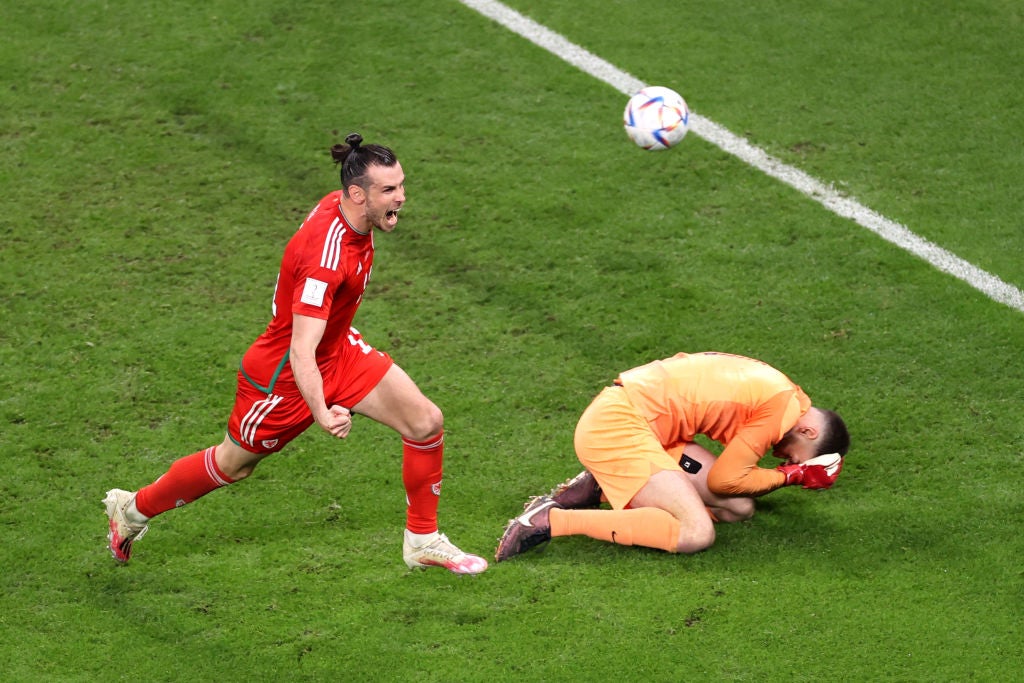
Two periods of 45 minutes, two very different Wales approaches.
Ultimately, an overly defensive-minded and deep-sat showing in the first of those almost proved their undoing, with USA taking a lead in a potentially decisive Group B clash, before a sea-change in...well, everything, saw the game end up a 1-1 draw.
Even Gareth Bale’s vital penalty aside, the second-half performance was an immense uplift from Robert Page’s team and along with the huge point they claimed, gives Wales a signpost for the route they’ll need to take if they are to scale this World Cup mountain which still lies before them.
The Dragons were never going to come out and dominate possession from the off in their first game, nor be full of slick passing and overcommitting numbers forward, but even so their first foray into World Cup action in over six decades was disappointingly reserved.
Dan James started, but Wales failed to utilise the strengths he possesses; Kieffer Moore came on at the break and immediately kept those in red shirts far higher up the pitch, far more able to play out and far more likely to risk a forward run to take possession from the second line.
A side like few others, Wales - players, staff, fans - have enormous emotional investment in the team and they have in modern times managed to overcome odds stacked against them in no small part thanks to this togetherness.
That willingness to do whatever is necessary was on show in the second half here and will be required in their upcoming two group games, the first of which is an absolute must-win.
But it isn’t all heart by any stretch; the tactical plan and technical approach have to be the biggest factors Wales get right.
With England hammering Iran earlier on to take the lead in Group B, the Welsh now know - if they didn’t already - that their own encounter with the Asian nation is the one maximum points must be taken from.
Iran struggled to keep organisation, were very aggressive off the ball, barely had much of an outlet down the channels and failed entirely to deal with set-piece deliveries.
For Wales, that means much more inclination to attack must be on show right from kick-off, and that Moore has to return to the starting XI.
Both wing-backs got through a huge volume of work against USA and, assuming fitness levels are fine, they’ll be crucial for Page. Their delivery from wide improved progressively as both numbers in the attacking half and pace of build-up play did so.
Braver on-the-ball work in midfield, turning in possession instead of constantly checking backwards and playing into the three centre-backs, was also of paramount importance to help the team shift important yards upfield, setting the platform for sustained pressure.
A series of headed efforts and almost-chances were the main moments of danger until Walker Zimmerman’s split-second of dismal decision-making, but if Wales can make it an hour or more of that kind of attacking impetus against Iran, surely more clear-cut scoring opportunities will follow.

Even with the poor first half from an attacking perspective, the manager recognised that fact - and knew how to change it.
“We showed character and determination to get a point and it’s important at the start of the tournament to not lose the game,” Page said at full-time.
“It was nothing against James it just suited a Kieffer to shift us up the pitch. For us to make the tweak i made a big difference. It was tactical.”
That’s exactly the path Wales must take against Iran. It doesn’t have to route one by any stretch, especially given Moore’s excellent footwork and link play on the deck against USA, but it does need his power, hold-up work and ability to occupy at least one centre-back alone.
Wales progressing to the last 16 could come down to just how clinical and adventurous they can be against Iran. Next time, on Friday, it will have to be right from kick-off, not just waiting to play catch-up.







